- Friday, 27 February 2026
Local level elections today
Kathmandu, May 13: Periodic election is the key feature of a democracy. The nation is going to elect new representatives in the local levels on Friday. This is the second such election after the nation became a federal republic.
A total of 17,733,723 voters are participating in this democratic exercise. They will elect 35,221 representatives for six metropolitan cities, 11 sub-metropolitan cities, 276 municipalities and 460 rural municipalities from among 145,011 candidates on the day.
It is the second local level election after the promulgation of the new constitution in 2015 and the fourth after the political change of 1990. Even during the Panchayat period, especially after the national referendum of 1981, Nepalis had exercised this democratic method of choosing their representatives through ballots.
However, due to the political instability in the country, local level elections were held only twice from 1992 -- in 1992 and 1997 -- to 2017.
As a result, the local levels had been left without elected representatives for 15 years, and it was during this period the people realised the importance of local levels. The development activities were stalled, and people were deprived of basic services. Moreover, they could not feel the presence of government.
This long vacuum was filled up only in 2017 when the local polls under the new constitution were held in three phases -- May 14, June 28 and September 18. The participation of the people in 2017 local poll was encouraging as average turnout of voters was 74.87.
After the poll, the development activities stalled for 15 years got a new momentum. It is evident from the unprecedented development works taking place in many of the local levels in the past four and a half years. Of course, these are the local levels which had been in the forefront in establishing schools and building roads and suspension bridges in villages across the country since 1980s. They are the bastions of not only democracy but also development.
In the words of constitutional expert Kashiraj Dahal, local levels in Nepal enjoy more rights than the federal and provincial governments.
“The Constitution has granted more rights to local level governments with a belief that the local levels constitute the foundation of Loktantra and they can meet the development and other needs of the people,” he said.
According to him, the local level governments are closest to the people to address their needs.
Stating that a government in a democracy acquires legitimacy through periodic elections, Dahal said the periodic elections provide the people with an opportunity to choose their competitive representatives in a peaceful way.
People exercise their sovereign rights in elections, they review the works of their representatives and choose new representatives if they are not satisfied with the performance of the sitting delegates, he said. People should elect the representatives who can deliver quality services to them, he added.
Obviously, holding the local elections were milestones in terms of the implementation of the Constitution as well as federalism in 2017.
Now, the elected representatives have completed their first term, and the people are going to elect their representatives for the second tenure.
However, Dahal said that the first term remained as a period of learning for the representatives of the local levels because of lack of needed manpower and laws and other shortcomings.
Stressing the need for reforms, he said, “The reports of Auditor Generals and Commission for the Investigation of Abuse of Authority showed huge arrears in the local levels. A few of the local levels could not present budget in time. These should be corrected by electing competitive representatives this time.”
In a few local levels, competitive and highly educated representatives were elected in the 2017 poll. However, they argued that the central level government did not cooperate with them. They said the central government did not provide them needed budget and manpower and prevented them from independently utiliisng the resources available in the local levels.
Mahesh Kharel, incumbent mayor of Panchkhal Municipality in Kavre, said that competent representatives could do a lot of creative works in the local levels if they were allowed to work independently.
“But the central level government and employees create problems by not sending budget and employees in time. They tend to control us unnecessarily interfering in our works,” Kharel, who is contesting the election for the second term, said.
Similar were experiences of Madan Sundar Shrestha, outgoing mayor and mayoral candidate of Madhyapur Thimi Municipality, Bhaktapur.
Shrestha said that the federal government and their employees did not cooperate with him, they tried to control him forgetting that he was a people-elected representative.
“The employees in Singha Durbar even threatened to obstruct budget whenever I denied accepting the employees they sent to the municipality, but I openly resisted such threat,” he said, adding, “Unnecessary interference from the central government and civil servants has posed a challenge to the implementation of federalism,” he said. Kharel suggested developing controlling mechanisms like the CIAA instead of directly interfering in the works of the local levels.
According to the Election Commission, it has set up 10,756 polling stations and 21,955 voting booths across the country for the voters to cast their votes.
Likewise, 165,000 security personnel including 32,000 personnel from the Armed Police Force, 62,000 from Nepal Police, 71,500 from Nepali Army and 100,000 temporary police have been mobilised for the security of the polling stations, booths, voters and the vote counting centres, according to the Home Ministry.

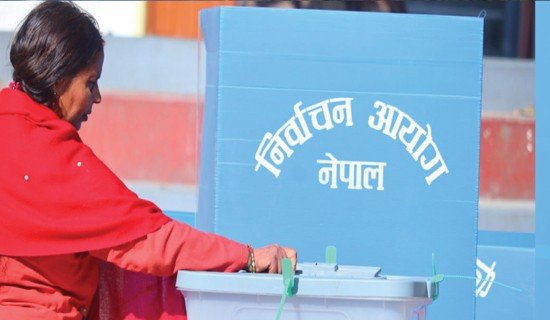

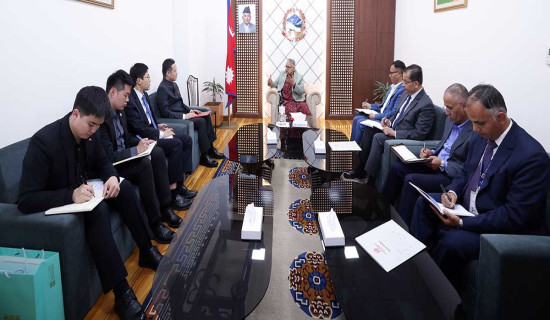
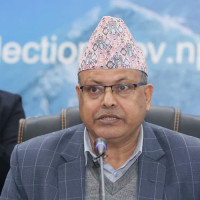
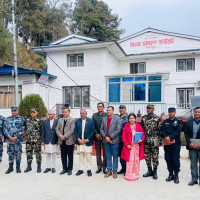

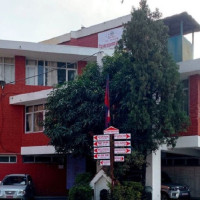
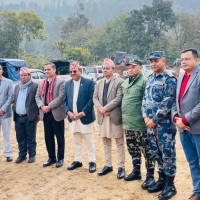
-original-thumb.jpg)







